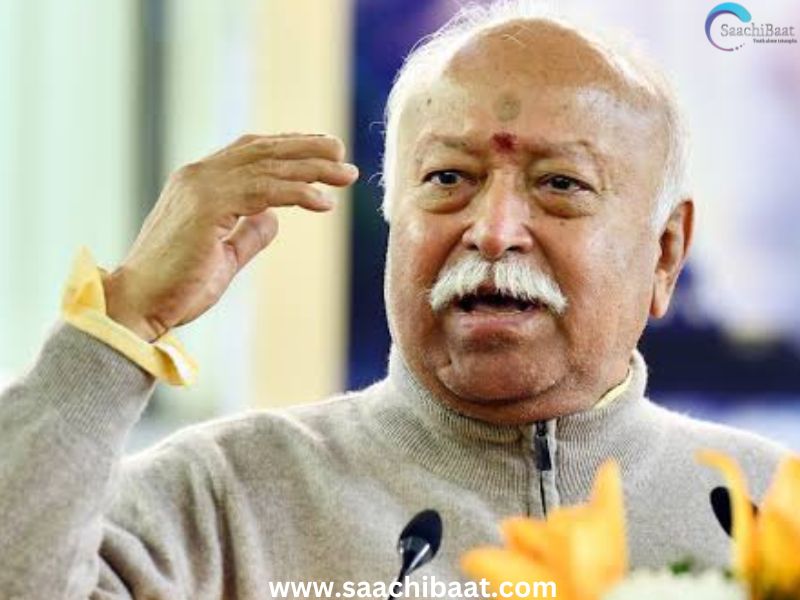Delhi: RSS chief Mohan Bhagwat recently stirred up a political storm when he suggested that families should have “at least three children” to ease population concerns and preserve cultural values. Speaking at an RSS rally, Bhagwat called for large families to bring about a balanced population as falling fertility rates could have a huge impact.
Her remarks drew sharp criticism from opposition groups and women’s rights advocates, who accused her of ignoring women’s individual rights and the socio-economic challenges families face.
The opposition is following them.
Opposition groups reacted immediately to Bhagwat’s remarks, calling him fatherly and backward. The Congress has accused the RSS of promoting a “narrow ideological agenda” and meddling in personal affairs.
Trinamool Congress MP Mahua Moitra said, “Women are not instruments of ideological stereotypes. Such issues undermine their role and freedom.”
The CPI(M) also condemned Bhagwat’s remarks as a form of control over the female body in the name of preserving culture.
Women’s groups are raising the alarm.
Women’s rights activists expressed considerable resistance that family planning was an issue of choice and not an issue of psychological consideration. They said such statements underestimate the reality of women’s health, economic status, and access to resources.
“This ideology reduces women to baby-making machines and takes away their basic rights,” said a leader of a top women’s organization.
RSS clarifies the concept
The RSS defended Bhagwat’s remarks, saying he wanted to flag demographic concerns and start a dialogue on India’s demographics. “Bhagavat ji was merely suggesting that the long-term consequences of the decline in fertility rates should be considered, without violating anyone’s rights,” the RSS spokesperson said.
A divisive debate
While his argument has rekindled many discussions about reproductive freedom, gender equality, and the role of cultural institutions in personal matters, Bhagwat’s comments come as a reaction to collectivist challenges; another side sees that it is a repetition of patriarchal ideas that do not change over time.
As issues of women’s rights and individual autonomy and cultural values enter the public discourse, one can expect the debate to continue.
××××××××××××××
Telegram Link :
For latest news, first Hand written articles & trending news join Saachibaat telegram group
https://t.me/joinchat/llGA9DGZF9xmMDc1

